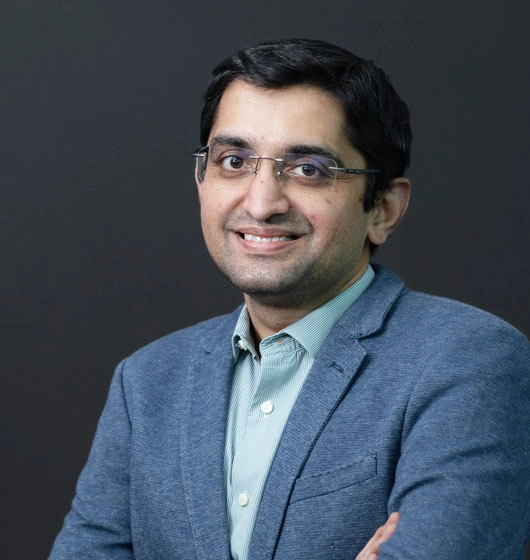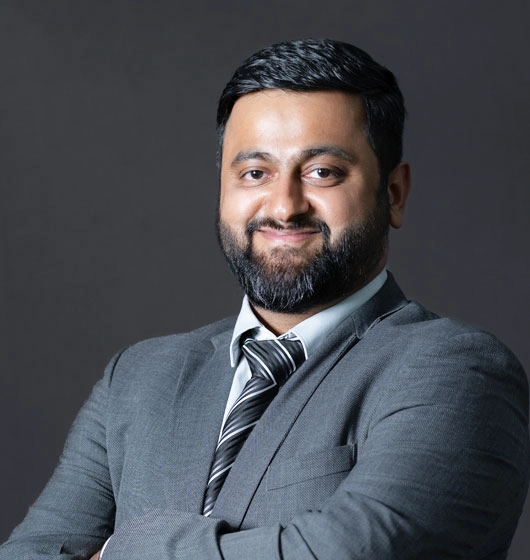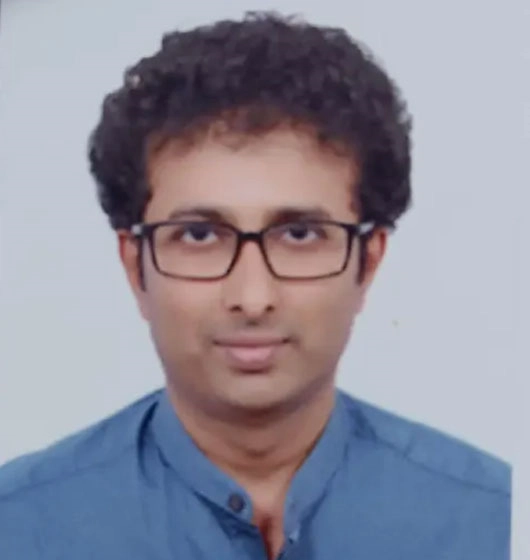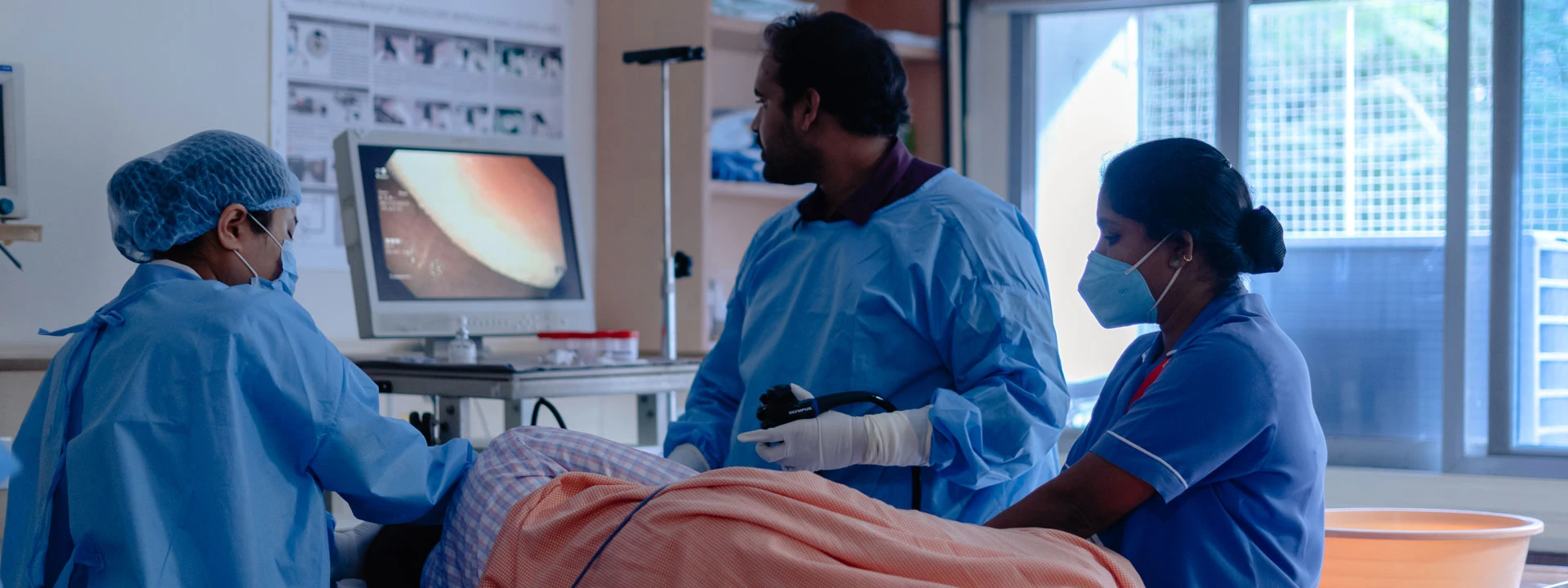
Department of Gastroenterology
The Department of Gastroenterology and Hepatology at Ramaiah Medical College and Memorial Hospitals.
It was established in 1988 and is one of the first Gastroenterology departments in the state. Spread over a combined area of 2500 sq ft, this department houses experienced gastroenterology faculty and state of the art equipment for endoscopic and non-endoscopic services.
The department is staffed by two full-time professors of Gastroenterology and an experienced assistant professor.
A DM Gastroenterology program has been running since 2011 with three students being trained every year. The department is a high volume centre with over 80-90 patients attending OPD services every day on an average.In-patient facilities are also available with full-time specialised doctors on call and trained nursing and in-house staff that cover the entire range of GI disorders.
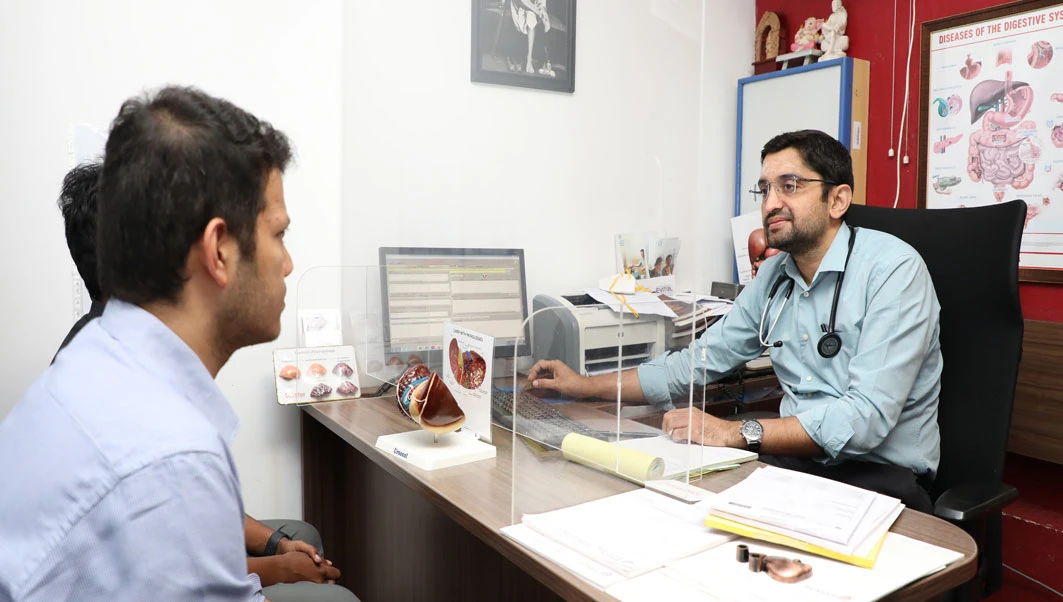
All the consultants in the department have completed training in advanced endoscopy and provide expert diagnostic and therapeutic care to patients with GI disorders. Over the last 10 years, the medical Gastroenterology department has expanded into a department that boasts capability to perform almost all prevalent diagnostic as well as therapeutic procedures.
In addition, cutting edge procedures like spiral enteroscopy, therapeutic endoscopic ultrasonography, high resolution manometry, etc are being performed regularly by skilled endoscopists.
Owing to the early institution of this vast infrastructure coupled with high patient footfall, it has enabled the development of skilled Endoscopy suite, the establishment of a GI technician course and a relentless commitment to achieve excellence in patient care. A total of 4 procedure rooms are running at any given time with an average load of 5500 upper endoscopy and 2000 colonoscopies performed every year.
In addition, we perform more than 500 ERCP and more than 200 EUS procedures for various diagnostic and therapeutic indications every year. Non-endoscopic procedures like esophageal manometry and 24hr pH metry, Hydrogen breath tests are also available.
A continuous quality control initiative has been set up in the department with the singular focus of patient safety. The department is also a centre of excellence in endoscopy training with a unique cadaver model that is second to none in the country.
In an era of transformative technology.. The use of Artificial intelligence in endoscopy is a specific area of interest in which the department has made giant strides. The department faculty is involved in multiple projects with industry collaborations in colonic polyp detection and image diagnosis of pancreatic lesions. The department of Gastroenterology is uniquely placed to take advantage of the rapid progress in the field by instituting inclusive policies, streamlined processes and specialised faculty who are academically inclined and clinically accomplished.
Facilities Availables
Endoscopy Services
The endoscopy suite is a state of the art facility with four procedure rooms and a spacious recovery room. Patient flow has been designed specifically to allow for minimum time to be spent in patient transfers and strict attention to infection control practices that are in line with global standards. Patient safety is a priority with specialized endoscopy technicians, nurses and doctors posted to endoscopy 24/7. The department is equipped to provide the entire range of GI interventions (Endoscopic and non-endoscopic).
Endoscopic and non-endoscopic services :
- Luminal Dilatations (Bougie & CRE)
- Esophageal Stent Placements (Benign & Malignant)
- Capsule Endoscopy
- Anorectal & Esophageal Manometry
- Biofeedback
- Hydrogen Breath Test
- Adult & Pediatric PEG Placement
- Upper and Lower Endoscopy Services – Diagnostic and Therapeutic
- Endoscopic Ultra Sound (EUS) – Diagnostic and Therapeutic
- Endoscopic Mucosal Resection (EMR)
- Post Liver Transplant Biliary Stricture Management
- Endoscopic Brachytherapy
- Endoscopic Retrograde Cholangio-Pancreatography - Adult & Paediatric
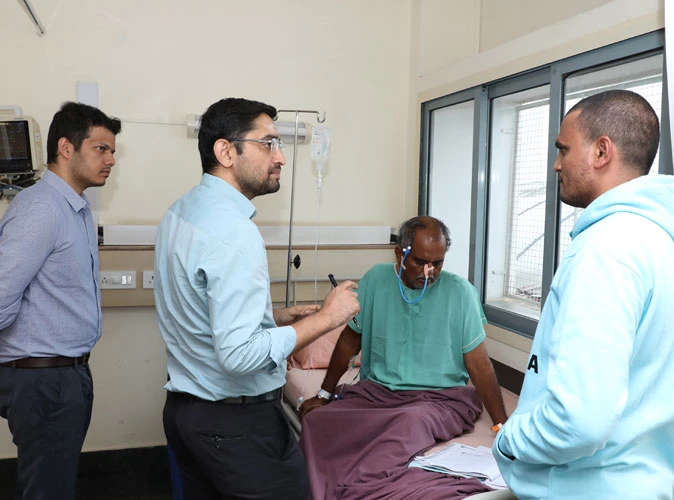
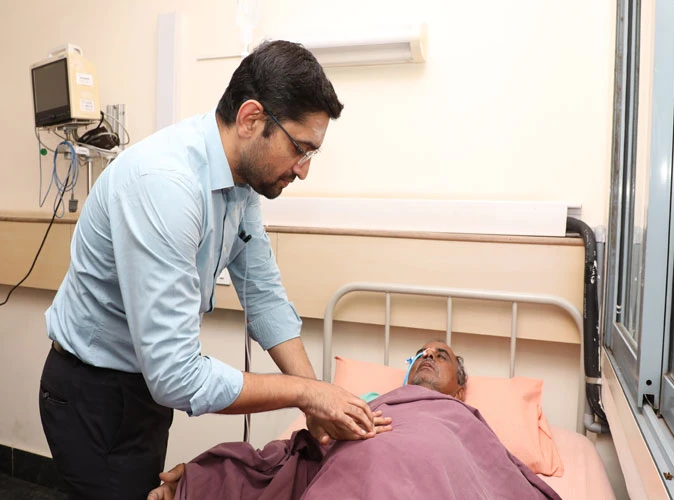
Services Offered
Speciality Clinics
Part of our goal is to be able to identify key verticals in Gastroenterology and provide doctors the latitude and encouragement to pursue these areas in order to achieve excellence in these niche subjects. This gives us an edge when it comes to providing specialty care to patients and also reiterates our aim to foster good research and development. Here we have a brief outline of our specialty clinics currently in operation.
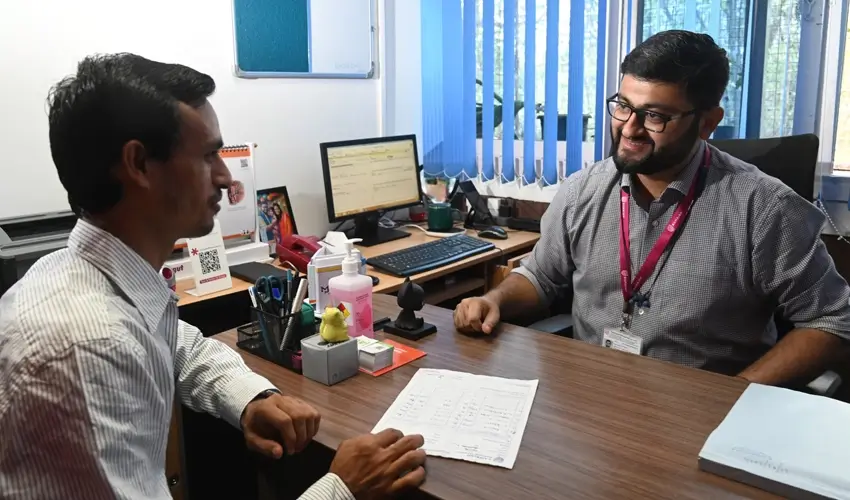
Pancreas Clinic
Pancreatitis and pancreatic cancer are common diseases in Karnataka and account for considerable mortality and morbidity. While alcoholic pancreatitis is very common in affluent countries, non-alcoholic pancreatitis, often known as tropical pancreatitis, is extremely common in the emerging economies of Asia and Africa. The exact cause/causes of this disease have remained an enigma despite several investigative research studies. This disease leads to maldigestion of food and diabetes mellitus early in life, leading to complications and death at a comparatively young age. A dreaded and not so uncommon complication of this disease is cancer of the pancreas, which is a rapidly fatal disease for which there is no cure.
Apart from being a public health problem, it is a scientific challenge to unravel the cause of this disease. The disease is often seen in multiple members of a family.
Hence a genetic causation is suspected, but not proved. There are evidences to suggest possible environmental factors too, such as either food toxins or the deficiency of certain essential components of the diet. To complicate matters, rising alcoholism and smoking in the population might also be having an increasing role in its causation.
The pancreas has been set up to provide specialized care to patients with pancreatic disorders, in addition to performing responsible research with clinical and social benefits.
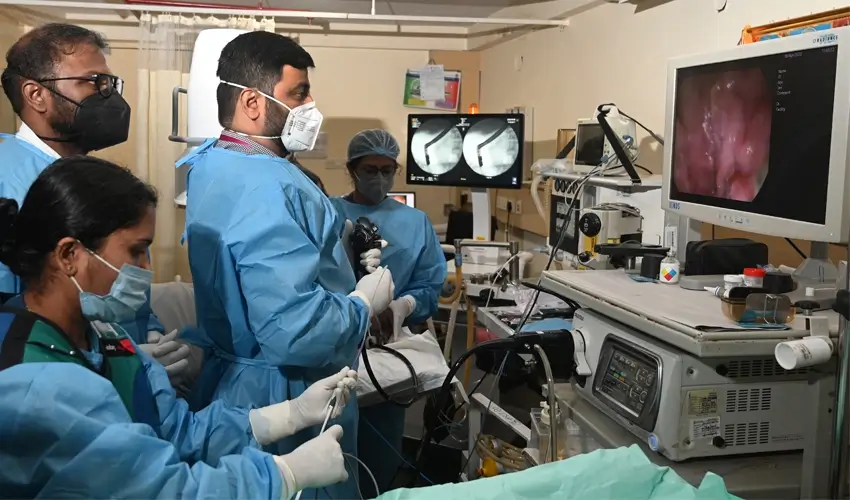
Our Future Objectives In The Area Of Pancreatic Research Are
- To Find Markers for the Early Detection of the Disease
- To Define the Aetiology (Causation) of the Disease in India
- To Understand Carcinogenesis in Chronic Pancreatitis
- Public Health Initiatives: Screening Program to Detect Early Pancreatic Cancer in High-Risk Groups
- Explore Personalized Medicine in the Treatment of Chronic Pancreatitis and Pancreatic Cancer
The Liver Clinic
More than half of patients treated in the GI department are patients suffering from liver diseases. In conjunction with the GI surgery department, an integrated approach to liver diseases is being practiced so as to provide holistic care.
The Liver diseases constitute a major cause of morbidity and mortality in our population. Apart from viral infections, alcohol is one of the common causes of acute and chronic liver damage. Cirrhosis and liver cancer account for a considerable amount of morbidity and mortality in the state as well as the country. While cirrhosis is a chronic progressive disease without any cure, liver cancer is a rapidly fatal disease which if diagnosed early enough affords effective treatment measures like Radio-frequency ablation, Trans-arterial chemoembolization and Trans arterial radio-embolization.
Non-Alcoholic Fatty Liver Disease (NAFLD) is a disease that usually accompanies components of the metabolic syndrome (MetS) including obesity, Diabetes, hypertension and dyslipidaemia. A particular subset of patients especially in the Indian population have ‘Lean NASH’, a disease that is similar to NAFLD but in lean patients not conforming to traditional definitions of MetS. India is expected to top the list for Diabetes and related complications within the next decade. Studies on NAFLD necessitate a multidisciplinary approach with Endocrinologists, Cardiologists and Nutritionists who share a common interest in further research studies on the intricacies of this disease and its further management. In this regard, a liver clinic serves as a nodal point for integration of multidisciplinary specialists and provide holistic care to patients.
Motility Laboratory
Department of Gastroenterology at Ramaiah is one of the few centres in South India to have a fully equipped motility lab replete with High resolution manometry for oesophagus, antroduodenal motility, biofeedback techniques, pH metry and Anorectal manometry. With a constantly changing definition for motility disorders of the GI tract, our motility lab has maintained global standards and kept up with recent updates to allow uniformity in disease interpretation and management. Experienced motility experts are in charge of the lab along with able GI technicians who are adept at performing the procedure with great ease. The staff extremely well trained and experienced in not just performing the procedure but also troubleshooting and interpretation of the data.
Paediatric Gastroenterology
Paediatric gastrointestinal diseases constitute a major portion of gastroenterology practice. GI diseases in the young are a unique set of diseases that require a separate skill set and experience. Endoscopic procedures in this population require the acquisition of separate, specifically tailored endoscopes to accommodate for differences in anatomy and indication. There are only a few centres in India that offer services in paediatric gastroenterology. The GI department has a fully equipped division dealing with paediatric GI diseases and paediatric endoscopes and accessories.
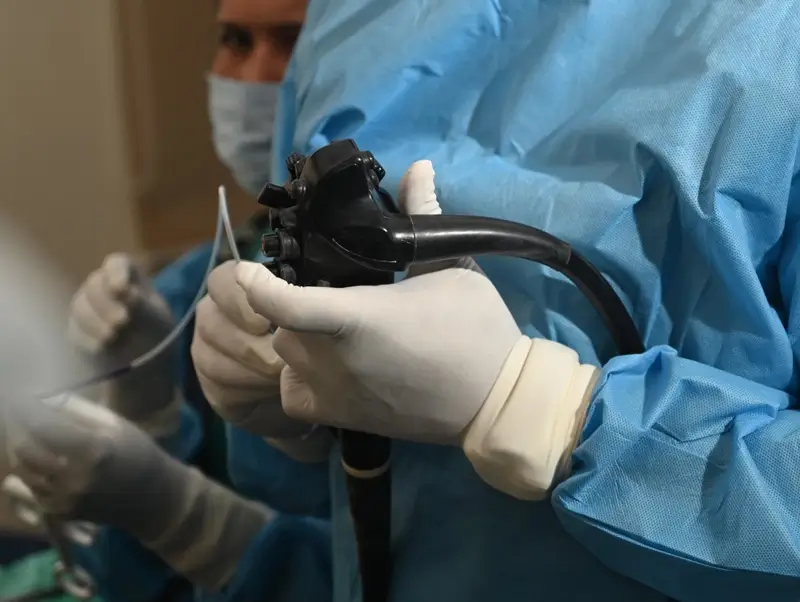
Inflammatory Bowel Disease (IBD) Clinic
IBD includes ulcerative colitis (UC) and Crohn’s disease (CD), both conditions causing ulcerations in the bowel with resultant bleeding through the rectum and diarrhoea. IBD can be a particularly debilitating disease in its severe form leading to malabsorption, emaciation and even death. There is no curative medical treatment for this disease and usually a multi –disciplinary team is required for optimal management including, GI surgeons, Rheumatologists, Ophthalmologists, etc.
Crohn’s disease has seen a steady increase in prevalence over the last few years with multiple reports published from all over the country. These reports are showing an increasing frequency especially in parts of South India, particularly in Karnataka and Kerala. Considering the rising prevalence and a lack of familiarity of clinicians in the country to the intricacies of the disease, it was decided to have a regular IBD clinic which will allow experienced specialists in the field to deliver focused care and facilitate interdepartmental cooperation during follow up and rehabilitation. At Ramaiah, we have started in IBD registry to compile and record the features of all IBD patients and have initiated research studies on IBD including community outreach and screening programs, multigene mutation analysis, immunologic studies, etc.
Speciality Clinics
| Name of the Clinic | Weekday/s |
|---|---|
| Neurology | Monday |
| CTVS | Monday |
| Neurosurgery | Monday |
| Paediatric Surgery | Monday |
| Vascular, Thoracic | Monday |
| Surgical Gastro | Tuesday |
| Urology | Wednesday |
| Breast Clinic | Thursday |
| Plastic Surgery | Friday |
| Surgical Oncology | Friday |
| Proctology Clinic | Saturday |
